Salesforce AI agents in action: case management made easier with our step-by-step guide
For most service teams, the biggest challenge isn’t a lack of data, but actually the opposite. It’s too many different data pieces scattered across the org. For example, a case comes in, and the support rep has to scroll through long feeds of comments and activities. Policies are stored in one document repository, while Knowledge Articles are in a completely different place.
In these situations, even when the straight answer exists, finding it quickly can take more time than actually solving the problem.
That’s why we decided to write this article and explain how Salesforce AI can help you resolve customer support issues quickly. Our expert Sofiia explains how the Service Assistant Salesforce feature works and how we extended it with Agentforce for service using Salesforce Einstein Copilot to give service teams even more control.
Why Salesforce AI matters for service teams
Assistive Salesforce AI makes a huge difference in how your service team operates. Instead of asking reps to hunt for information in different sources, the system can surface it instantly, summarize what’s important, and even suggest the next steps. Salesforce offers several solutions for this, one of which is the Service Assistant. Let’s take a closer look at its features.
What is a Service Assistant in Salesforce?
As a Lightning component on the Case record page, the Service Assistant Salesforce feature automatically summarizes the case and proposes a service plan (a set of recommended steps). It’s the quickest way to provide service reps with context without requiring them to read through the entire case history.
Getting the Salesforce Service Assistant to provide useful recommendations isn’t just a matter of turning it on. It can summarize cases and generate a basic service plan, but to make it truly valuable, you need to teach it how your organization solves cases. Grounding it with your case data is required, while Knowledge articles aren’t mandatory for this feature.
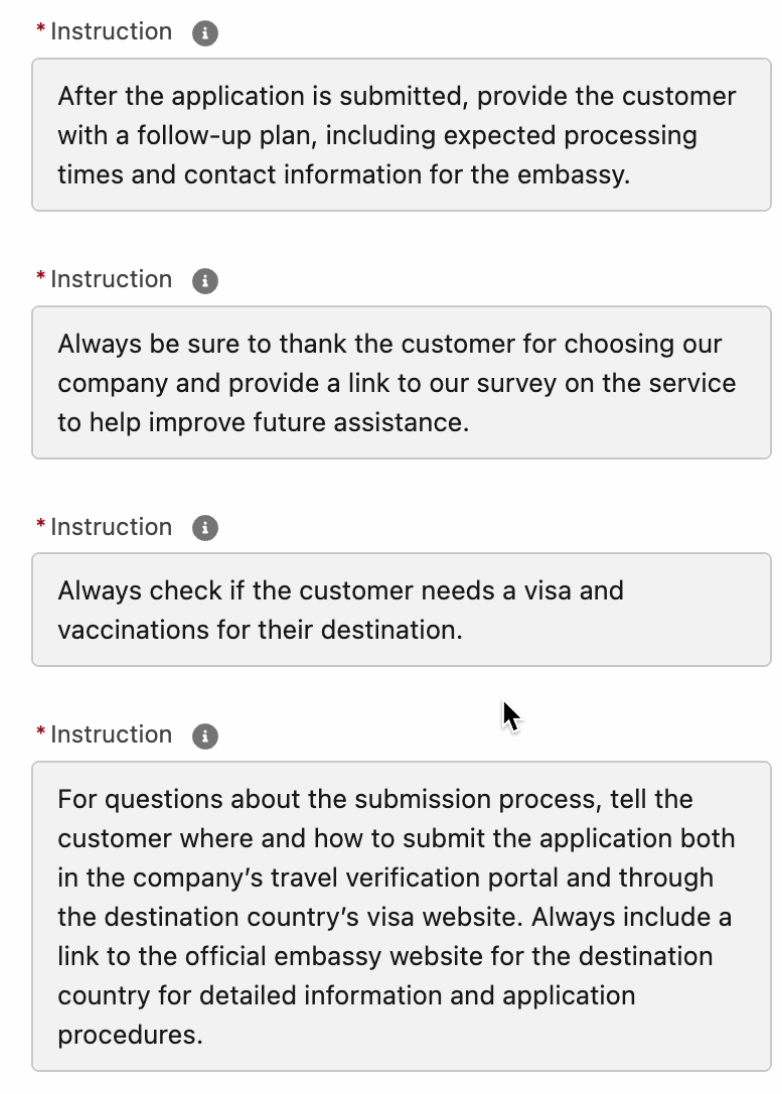
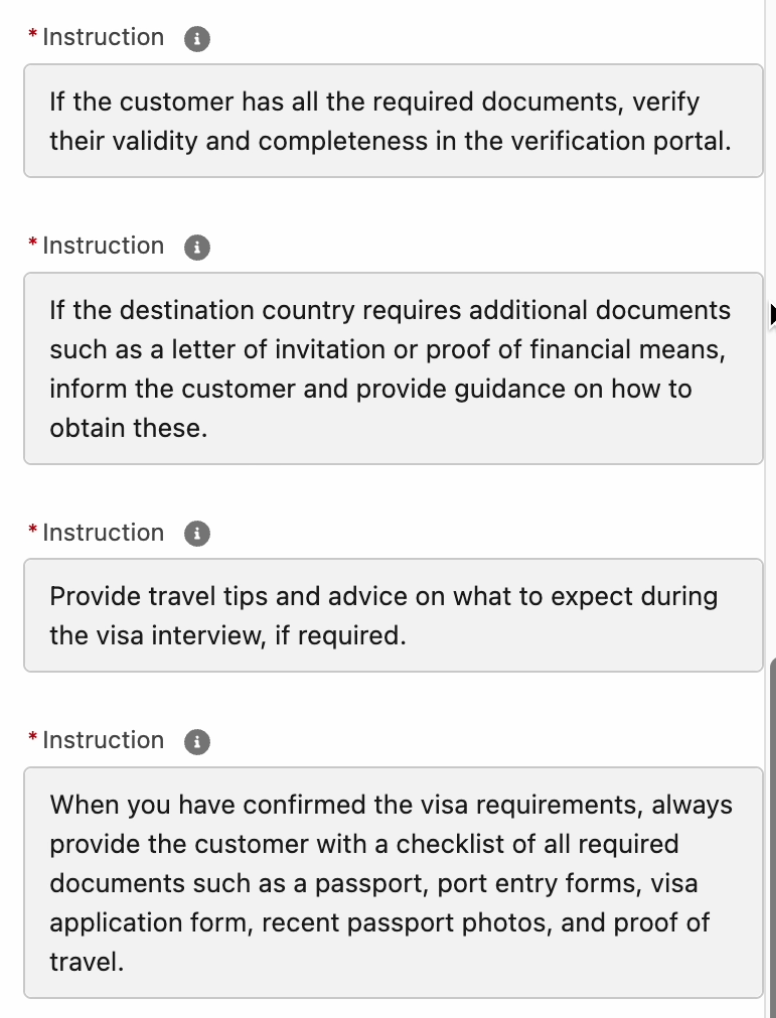
Making the Service Assistant valuable with data grounding
When you combine data grounding with clear instructions, the Service Assistant generates practical, step-by-step guidance that reps can immediately act on. And because the component lets you redraft plans at any time, the output stays up to date as the case evolves.
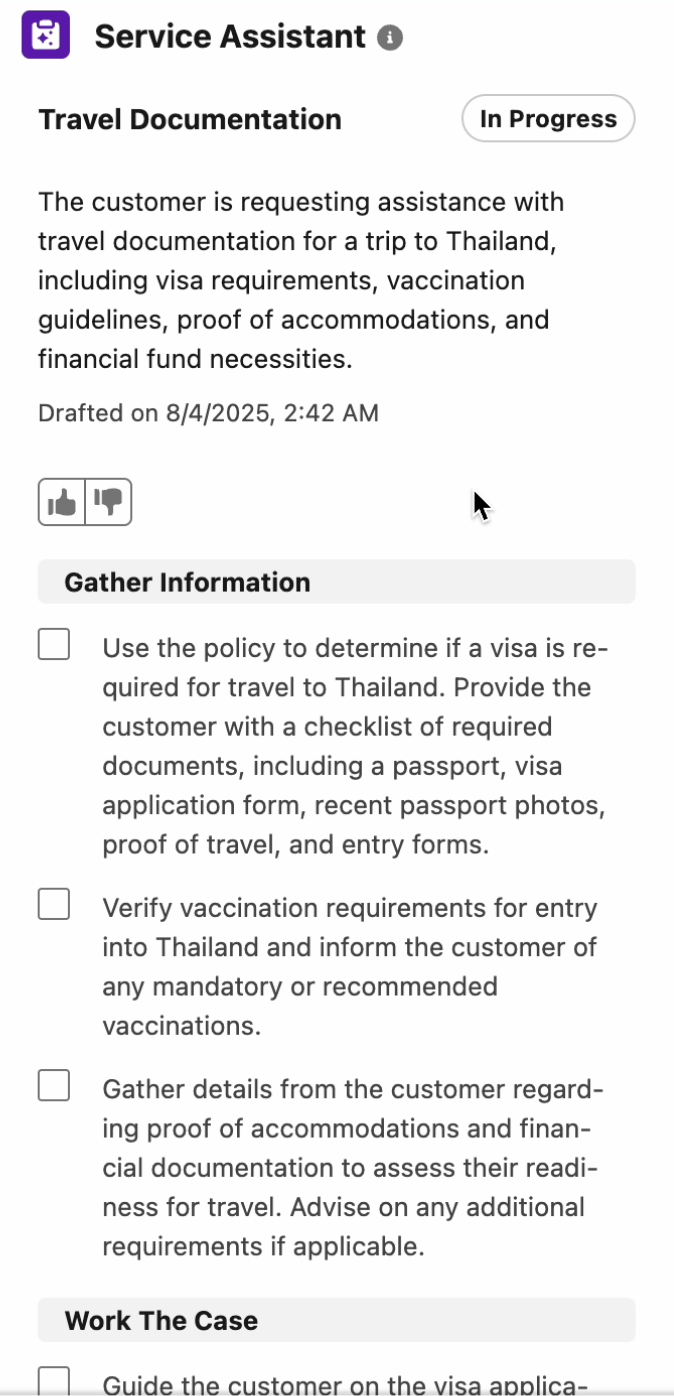
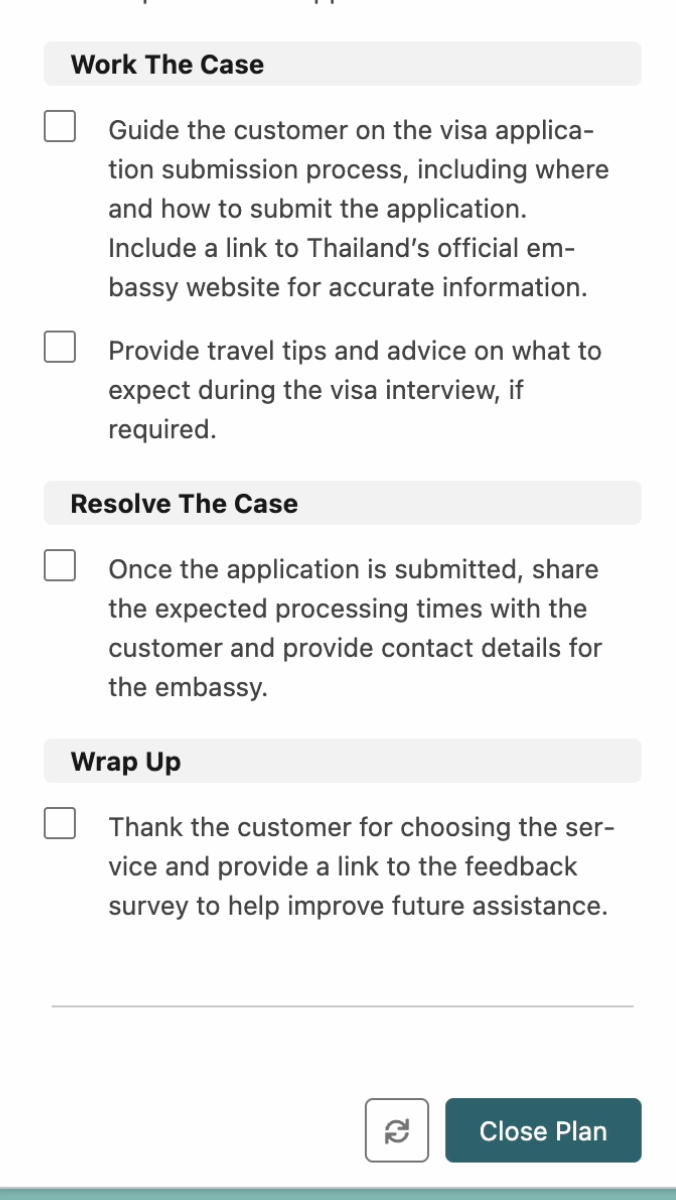
Extending Service Assistant with Agentforce for service
From there, once you understand the value of having Salesforce AI assist directly on the Case page, you can go further with custom Agentforce for service Copilot topics, like the ‘Case Assistant’ I’ll describe. You can add domain-specific actions (send an article to the customer, route the case to a specialist queue) while still leveraging the same Salesforce AI foundation. Here is how we made it to work:
- First, the Service Assistant looks through the knowledge base and provides a clear summary back to the Salesforce Agentforce Service Agent and the user.
- The Agentforce Service Agent quickly reviews this summary: if the text indicates that no relevant knowledge was found, or if the response seems off, the Assistant will ask if the user wants to guide the case to the right support queue instead.
- If the summary looks good and the user agrees, the Assistant can help send a suggested resolution to the customer by email directly from the case.
Here is how it looks in practice:
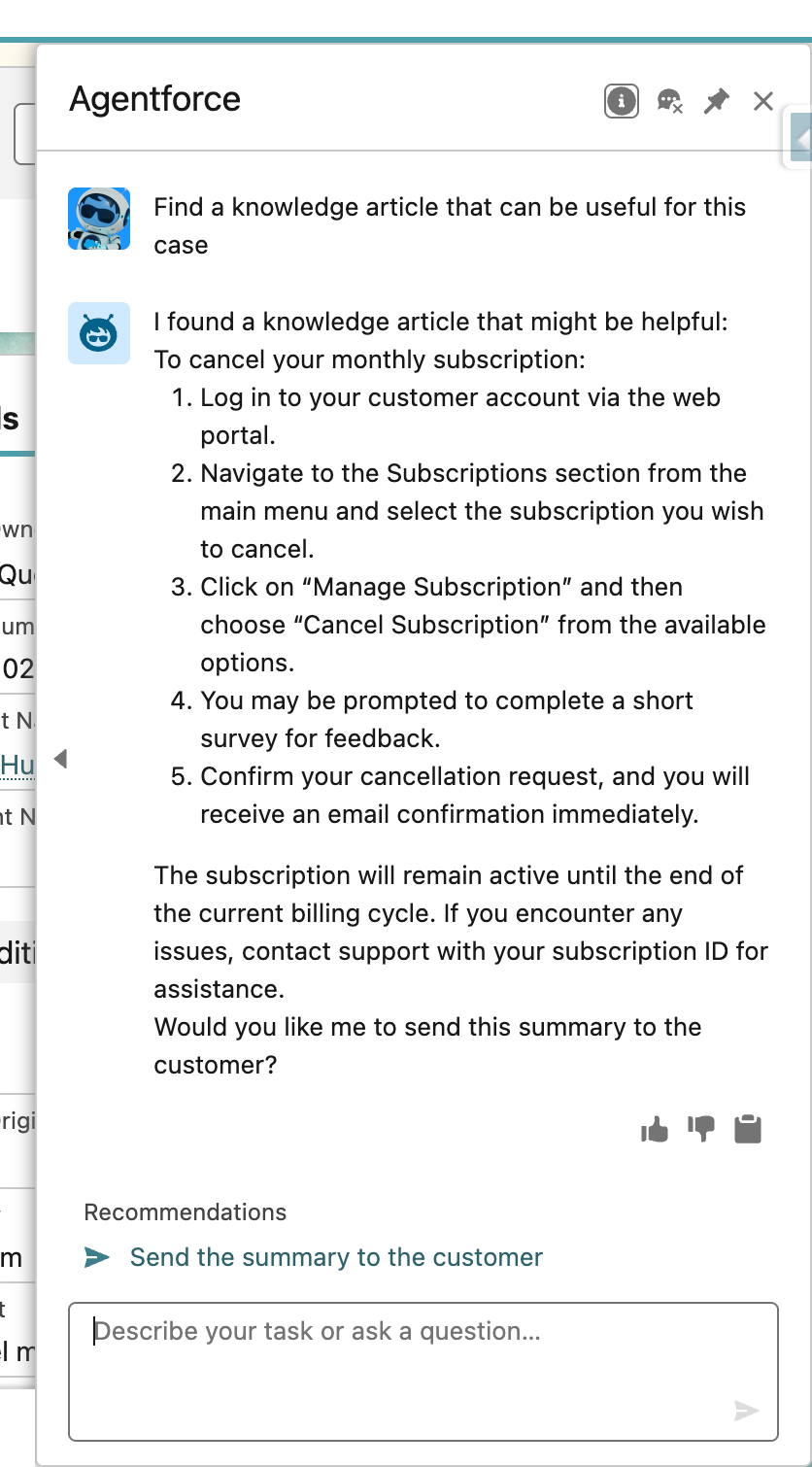
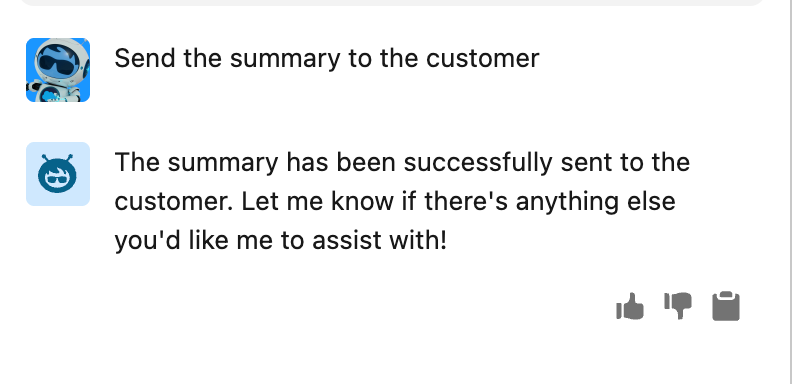
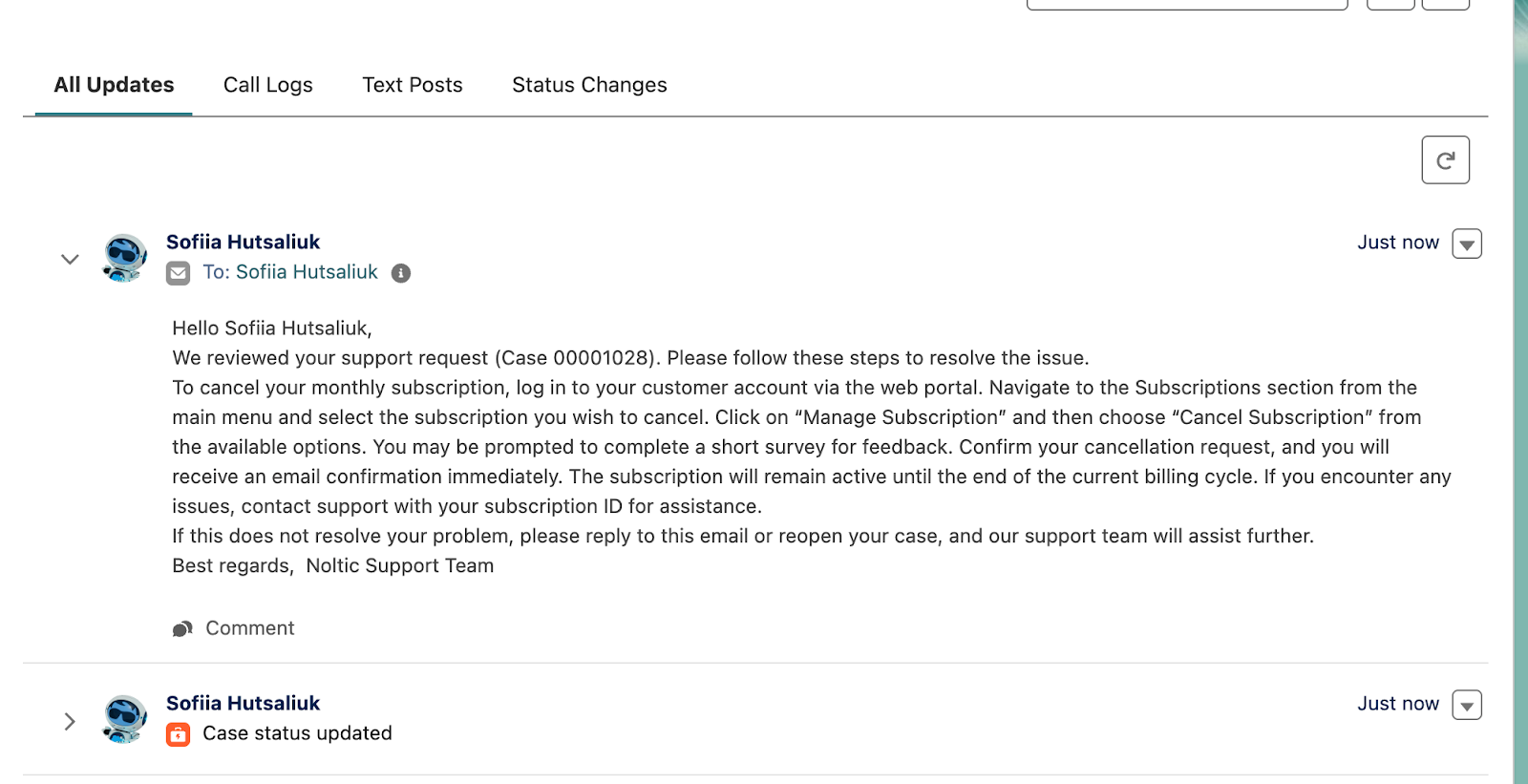
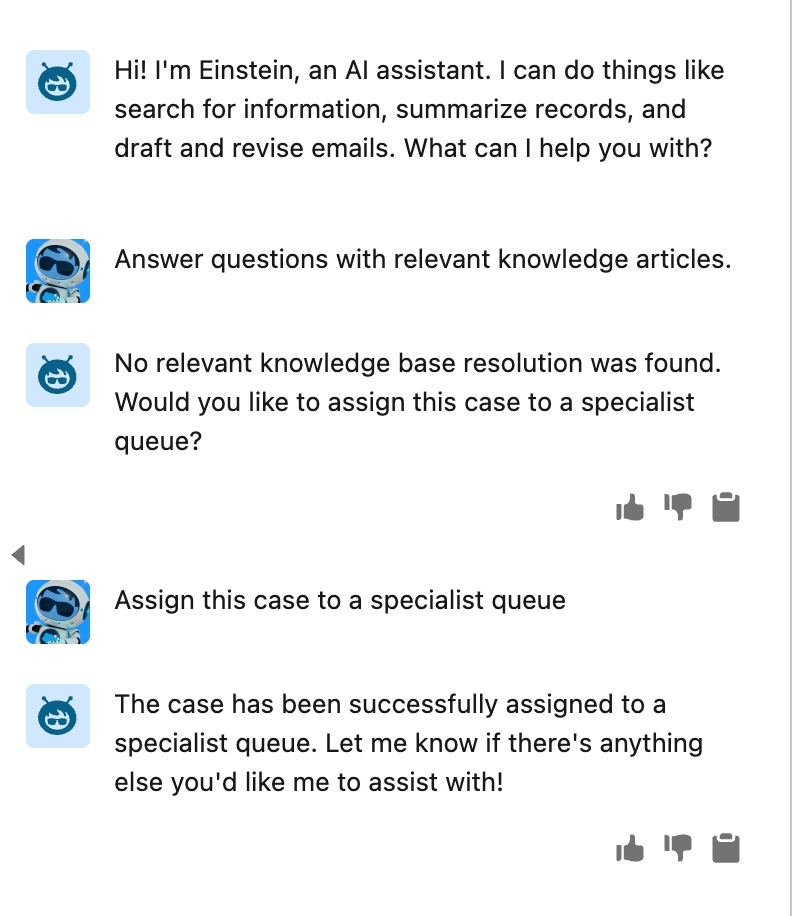
How we built the solution with Salesforce Einstein Copilot
To achieve this result, Salesforce Einstein Copilot was grounded with a Data Library (which requires Data Cloud permissions) that consists of published Knowledge articles.
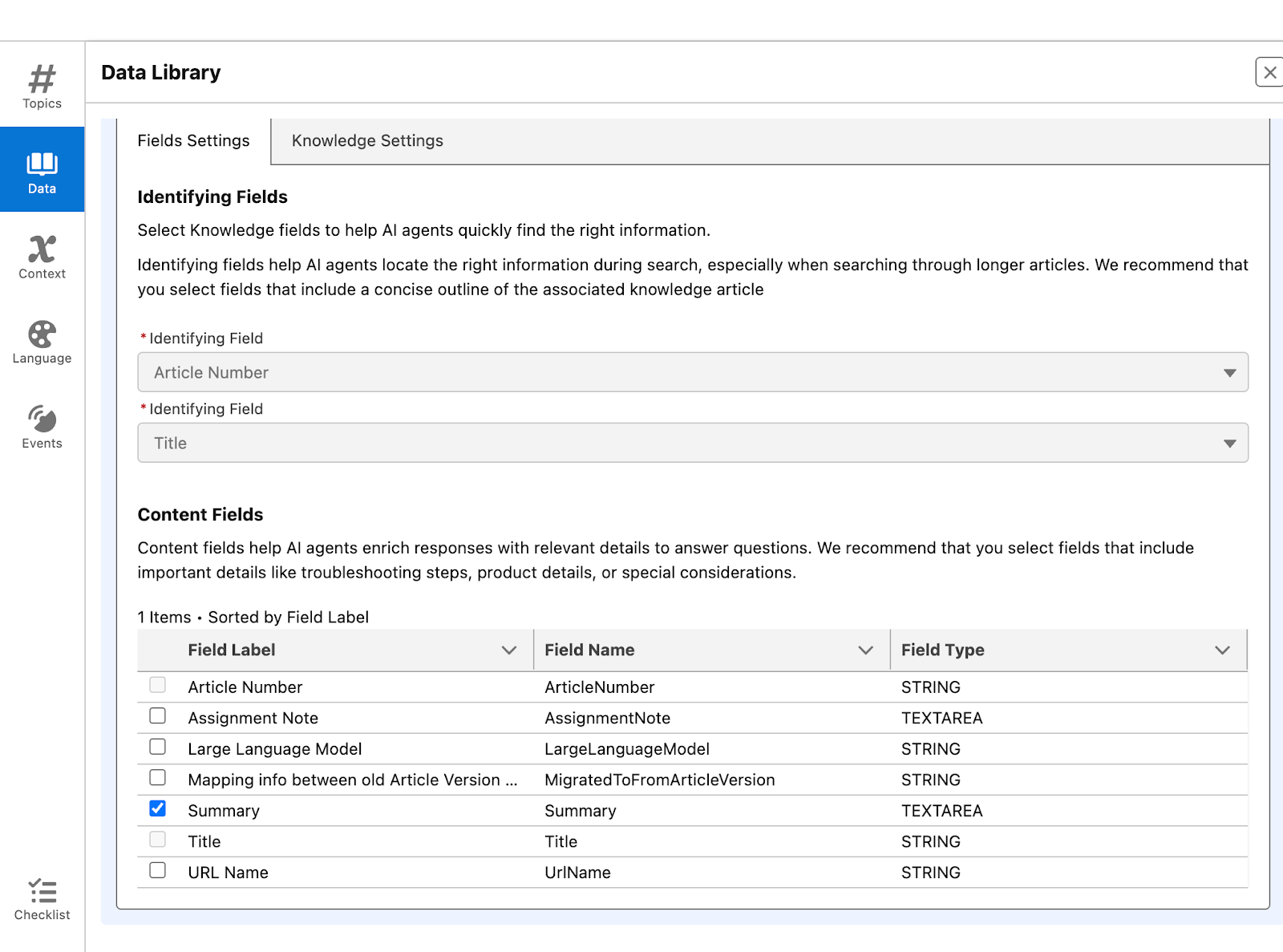
We then built two simple custom Flows:
- One for sending a resolution email to the customer.
- One for reassigning the case to the correct queue when no answer is available.
These flows were exposed to the assistant as agent actions, which could be triggered directly from the Case page.
For the standard piece, we relied on the “Answer Questions with Knowledge” action. It automatically searches the Knowledge base and produces a concise summary. Combined with our custom flows, this created a complete decision path: send a resolution or escalate.
Einstein Copilot vs Agentforce: what’s the difference?
Although Einstein Copilot Salesforce and Agentforce for service often work together, they are designed for different purposes.
- Einstein Copilot is a conversational interface that helps agents ask questions in natural language and receive guided answers. It’s built to summarize, explain, and provide context.
- Agentforce is about execution. It powers task-focused Salesforce AI agents, like the Agentforce Service Assistant, which can trigger flows, send resolution emails, or reassign cases.
In practice, Einstein Copilot helps agents understand what’s happening, while Agentforce ensures the right actions are taken. Used together, they give service teams both insight and automation on the Case page.
Permissions needed for Einstein Copilot Salesforce actions
For everything to run smoothly, the user running Copilot actions needs the following permissions:
- Knowledge: Read;
- Case: Read/Edit;
- Contact: Read;
- Send Email;
- Run Flow.
Conclusion: the future of case management with Salesforce AI agents
Service teams don’t suffer from a lack of information. They suffer from too much of it, hidden in different corners of the system. With Salesforce AI agents like Service Assistant and Copilot, reps get the context they need instantly, along with clear options for next steps.
As Sofiia shows, even a basic setup of Service Assistant brings immediate value, but the real power comes when it’s extended with Agentforce actions tailored to your workflows. This combination turns Salesforce into a practical, AI-driven assistant that supports every step of case resolution.
At Noltic, we’ve seen firsthand how Salesforce AI can transform service operations. As a Salesforce Summit Partner with 140+ delivered projects, 400+ certifications, and proven experience building custom Agentforce for service solutions, we help organizations make the most of Service Cloud and Salesforce AI features. Whether you’re looking to start small with Service Assistant or roll out advanced Copilot scenarios, our team can guide you from planning to implementation.
FAQs
What is Service Assistant Salesforce and how does it help support teams?
Service Assistant Salesforce is an AI-powered Lightning component available on the Case page. It automatically reviews case history, summarizes long comment threads, and generates a service plan with recommended steps. This saves agents from scrolling through dozens of records to understand the issue. Instead, they get a clear, concise summary and a structured plan for resolution. The result is faster first-response times, more consistent answers across the team, and less time wasted on repetitive manual work. When combined with Knowledge Articles, Service Assistant becomes even more valuable, as it can surface precise guidance that aligns with company policies.
How do Salesforce AI agents like Agentforce Service Assistant differ from Einstein Copilot?
The difference between Salesforce AI agents and Einstein Copilot Salesforce comes down to how they support the service process.
Einstein Copilot acts as a conversational guide. Agents can ask questions in natural language (“What’s the status of this case?” or “What policy applies here?”), and Copilot provides summaries, explanations, or suggestions.
Agentforce for service, on the other hand, powers task-focused Salesforce AI agents like the Agentforce Service Assistant. These agents can execute concrete actions: sending resolution emails, reassigning cases to the right queue, or pulling up Knowledge-based summaries.
In short, Einstein Copilot vs Agentforce is about insight versus action. Together, they give teams both the intelligence to understand a case and the tools to resolve it efficiently.
Do you need Salesforce Data Cloud to use Agentforce Service Assistant?
To unlock the full potential of Agentforce Service Assistant, you need access to a Data Library, which requires Salesforce Data Cloud permissions. The Data Library lets you ground Copilot with your published Knowledge Articles and organizational case data. While basic Service Assistant features (like case summarization) can work without Knowledge Articles, using Data Cloud ensures the assistant delivers recommendations that are consistent, accurate, and aligned with your workflows. For service teams handling large volumes of cases, grounding with Data Cloud is what makes Salesforce AI agents move from being a helpful add-on to a critical part of daily operations.
together


.webp)